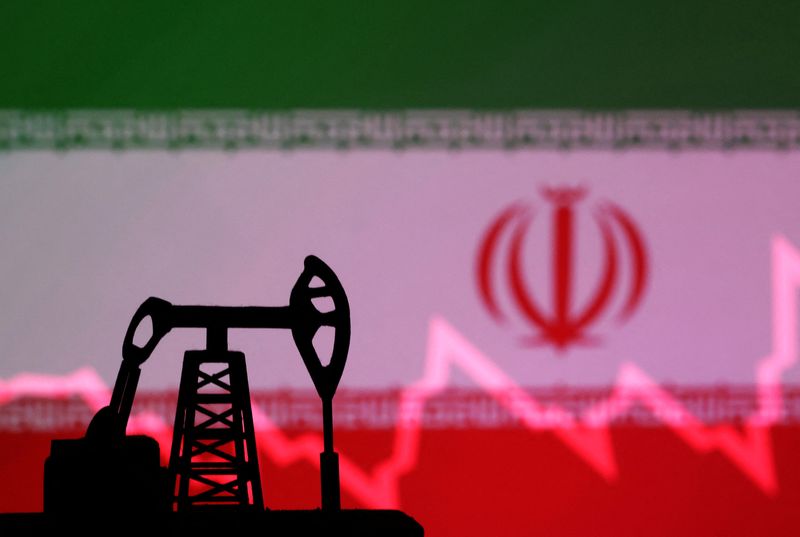
By Timothy Gardner
WASHINGTON (Reuters) -The United States expanded sanctions against Iran’s petroleum and petrochemical sectors on Friday in response to an Iranian missile attack on Israel, the administration of President Joe Biden said.
The U.S. move adds petroleum and petrochemicals to an executive order that targets key sectors of Iran’s economy with the aim of denying the government funds to support its nuclear and missile programs.
“The new designations today also include measures against the ‘Ghost Fleet’ that carries Iran’s illicit oil to buyers around the world,” Jake Sullivan, the national security adviser, said in a statement. “These measures will help further deny Iran financial resources used to support its missile programs and provide support for terrorist groups that threaten the United States, its allies, and partners.”
Israel is vowing to respond to Iran’s Oct. 1 missile attack, launched in retaliation for Israeli strikes in Lebanon and Gaza and the killing of a Hamas leader in Iran.
The U.S. Treasury can now “impose sanctions on any person determined to operate in the petroleum and petrochemical sectors of the Iranian economy,” it said in a statement.
Biden has said Israel should seek alternatives to attacking Iran’s oil fields. Gulf states are lobbying Washington to stop Israel from attacking oil sites because they are concerned their own facilities could come under fire from Tehran’s proxies if the conflict escalates, three Gulf sources told Reuters.
The Treasury Department also said it was designating 16 entities and identifying 17 vessels as blocked property, citing their involvement in shipments of petroleum and petrochemical products in support of the National Iranian Oil Company.
Concurrently, the State Department took steps to disrupt the money flow into Iran’s weapons programs and support for “terrorist proxies and partners.”
It imposed sanctions on six entities involved in Tehran’s petroleum trade and identified six ships as blocked property.
Iran’s oil exports have risen under Biden’s tenure as Iran succeeds in evading sanctions and as China has become Iran’s major oil buyer.

The Eurasia Group risk consultancy said on Friday the U.S. could cut Iran’s oil exports through tighter enforcement of previously imposed sanctions, for instance through satellite imaging for stricter monitoring of tankers that have turned off transponders.
The U.S. could also pressure countries to support enforcement efforts such as Malaysia, Singapore and the United Arab Emirates, it said. But that approach “would require strong diplomatic pressure on two partners, Malaysia and UAE, which are both reluctant to support efforts favoring Israel,” it said. Tougher enforcement of sanctions would likely require targeting Chinese firms shipping Iranian crude, it said, as China buys nearly 90% of Iran’s crude-oil exports.
This post is originally published on INVESTING.



